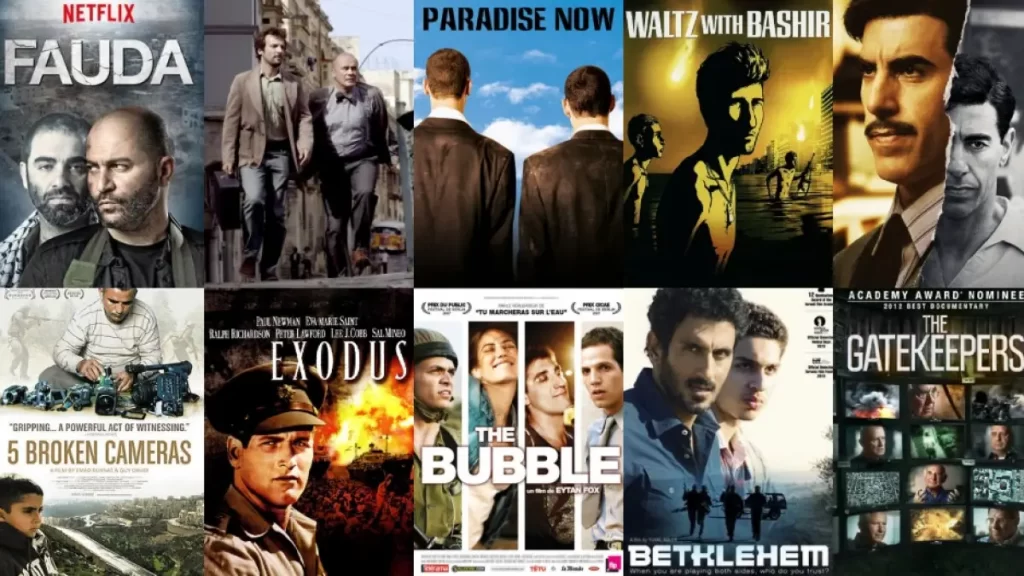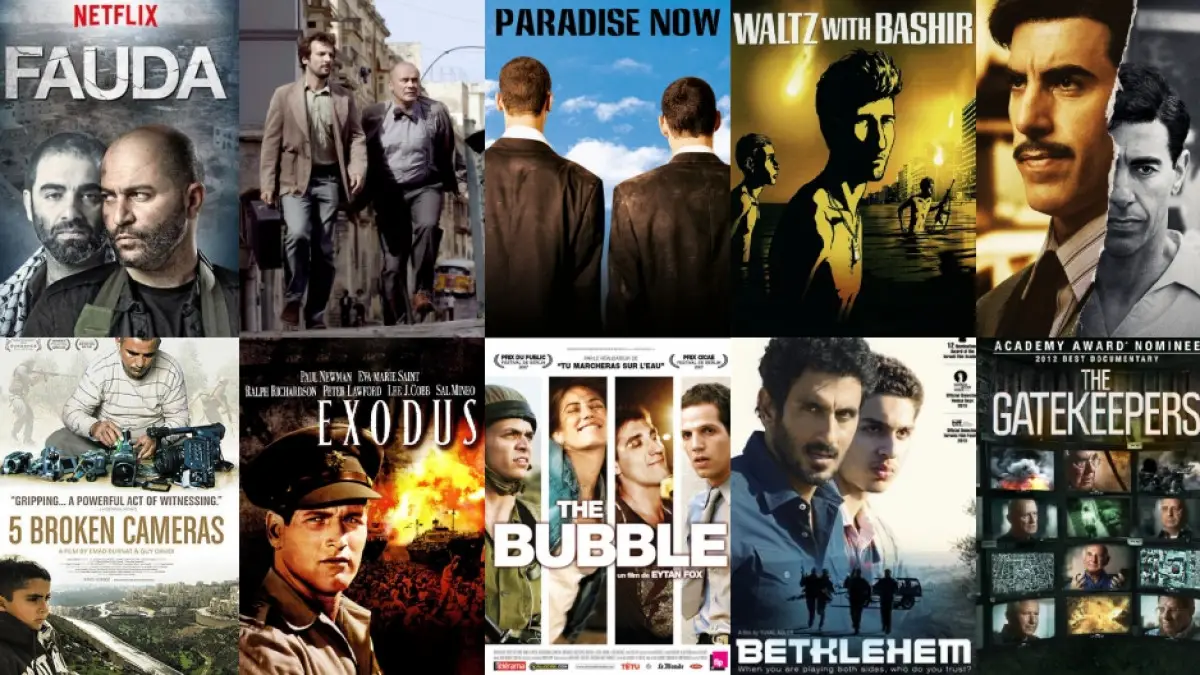
In the midst of one of the world’s most enduring and complex conflicts, cinema has emerged as a powerful medium for exploring the nuances and human dimensions of the Israeli-Palestinian conflict. From documentaries to dramas, filmmakers from diverse backgrounds have offered poignant perspectives that shed light on the multifaceted nature of this protracted struggle. Here are eight films that provide invaluable insights into the Israeli-Palestinian conflict:
- “5 Broken Cameras” (2011): Directed by Emad Burnat and Guy Davidi, this documentary chronicles the life of Palestinian farmer Emad Burnat and his village of Bil’in in the West Bank. Through the lens of Burnat’s camera, the film captures the nonviolent resistance of the villagers against the Israeli occupation, as well as the personal toll it takes on their lives.
- “Paradise Now” (2005): Directed by Hany Abu-Assad, “Paradise Now” offers a gripping portrayal of two Palestinian friends recruited as suicide bombers. Set in the occupied territories, the film delves into the complexities of their decision and the human cost of the conflict, challenging viewers to confront the realities faced by Palestinians living under occupation.
- “Waltz with Bashir” (2008): Directed by Ari Folman, this animated documentary explores Folman’s own experiences as a soldier during the 1982 Lebanon War. Through a series of vividly animated sequences and interviews, the film delves into the trauma and moral dilemmas faced by Israeli soldiers, offering a unique perspective on the psychological toll of conflict.
- “The Gatekeepers” (2012): Directed by Dror Moreh, “The Gatekeepers” features interviews with former heads of Israel’s internal security agency, the Shin Bet. Through their candid reflections and insights, the film provides a rare glimpse into the Israeli security establishment’s perspectives on the conflict, including its challenges and shortcomings.
- “Jenin, Jenin” (2002): Directed by Mohammed Bakri, “Jenin, Jenin” offers a Palestinian perspective on the Israeli military’s incursion into the Jenin refugee camp during the Second Intifada. Through interviews with residents and eyewitness accounts, the film depicts the devastation wrought by the assault and its lasting impact on the community.
- “The Lemon Tree” (2008): Directed by Eran Riklis, “The Lemon Tree” is a fictional drama inspired by real events. The film follows the story of a Palestinian widow who fights to save her lemon grove from being uprooted by the Israeli Defense Minister, whose new residence overlooks her land. Through the lens of the lemon tree, the film explores themes of loss, resistance, and the complexities of coexistence.
- “Ajami” (2009): Directed by Scandar Copti and Yaron Shani, “Ajami” is a multi-narrative drama set in the eponymous neighborhood in Jaffa, a mixed Arab-Jewish area of Tel Aviv. The film interweaves the stories of various characters, including Palestinians, Israelis, and foreign workers, offering a mosaic of perspectives on life in the midst of the Israeli-Palestinian conflict.
- “Promises” (2001): Directed by Justine Shapiro, B.Z. Goldberg, and Carlos Bolado, “Promises” is a documentary that follows the lives of seven Israeli and Palestinian children living in and around Jerusalem. Through intimate interviews and candid conversations, the film explores the hopes, fears, and dreams of these young people growing up amidst the conflict, offering a glimpse into the human face of the Israeli-Palestinian divide.
These films represent a diverse array of perspectives and experiences related to the Israeli-Palestinian conflict, challenging viewers to grapple with its complexities and contradictions. By engaging with the stories and voices depicted on screen, audiences can gain a deeper understanding of the human cost of the conflict and the urgent need for a just and lasting resolution.





